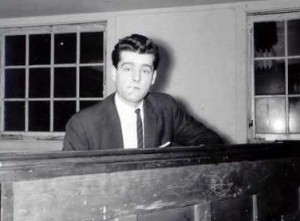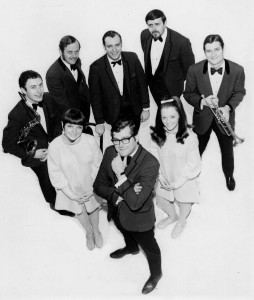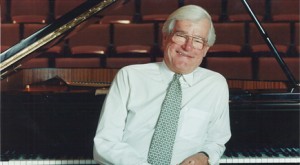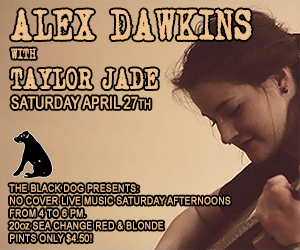TRUE TALES OF THE ROAD: Tommy Banks comes home
Posted on April 24, 2012 By Mike Ross Front Slider, Music
 We now have eyewitness evidence that things were better in the old days. For musicians.
We now have eyewitness evidence that things were better in the old days. For musicians.
Tommy “The Senator” Banks remembers – age 75 and still going strong, he has a lot to remember – “In the 1960s, within one block of Jasper Avenue on either side, between 100 Street and 109 Street, there were 18 clubs that had live bands six nights a week. There were hundreds of musicians working downtown.”
You know all those old Edmontonia photos by Ernest Brown, and how it always looked so busy? Jasper Avenue, now roomy enough for a tumbleweed to blow 10 blocks unhindered after dark, was packed with pedestrians for one simple reason. “There were no malls,” Banks explains. Also not much to compete with live music. Downtown Edmonton was happening. There were also nightclubs on the Southside, on the North end, on Kingsway. “We worked six nights a week – everybody did.”
Banks, no longer an actual senator and back “hustling gigs like any musician,” will conduct the Edmonton Symphony Orchestra at the Winspear Centre Friday and Saturday for a “Tommy Banks and Friends” concert – so now we come to another TRUE TALE OF THE ROAD. Back in the day – that day being circa 1960 – Tommy Banks and his Banknotes were a up-and-coming Vegas lounge act, a scene at the time that was considered the “holy grail” for professional musicians. The group had just been signed by agent William Morris himself, booked a string of swanky rooms across Nevada with designs on conquering Las Vegas itself.
“We thought we finally made it,” Banks says. He says they’d never seen that much money – $5,000 US a week for a seven-piece band, plus comedian. They had to play three 45 minute sets from 9 p.m. to 3 a.m. every night, alternating with two other bands on a revolving stage – the next band tag-team-style taking up the last song being played by the other so the music literally never stopped. Wayne Newton, who had yet to become Mr. Vegas, was staying in the same cheap motel and working the same circuit as the Banknotes. Checking out each other’s bands up and down the strip was what musicians did on their 90 minute breaks.
 Five large a week turned out to be not so much after all, Banks says, when you consider having to keep a home in Edmonton, pay for your accommodations on the road, plus agent’s fee, union dues, withholding tax and so on. To make matters worse, “We all gambled like crazy,” Banks says. “Craps, blackjack, for one week I had a gambling problem. I haven’t gambled since. Only Bobby Cairns had any money at the end of the week. He didn’t gamble. The rest of us blew our brains out, so I had to wire home for money and I gave everybody a five dollar a day dole to live on and that was it.”
Five large a week turned out to be not so much after all, Banks says, when you consider having to keep a home in Edmonton, pay for your accommodations on the road, plus agent’s fee, union dues, withholding tax and so on. To make matters worse, “We all gambled like crazy,” Banks says. “Craps, blackjack, for one week I had a gambling problem. I haven’t gambled since. Only Bobby Cairns had any money at the end of the week. He didn’t gamble. The rest of us blew our brains out, so I had to wire home for money and I gave everybody a five dollar a day dole to live on and that was it.”
Still, things were going well for the Banknotes. Reviews were glowing, the bookings kept coming, the band was scheduled to appear at Frank Sinatra’s Cal Neva Lodge and then in Vegas. It so happened that one week in Reno they were playing down the street from Woody Herman’s band, and because their sets alternated, had lots of time to shoot the breeze with fellow musicians.
Banks says, “We were hanging out at the bar after we were finished playing, and one of them asked Bob Miller, our bass player at the time – who has since passed away, unfortunately – where we were from and what the music business was like. And we described it: We played in the clubs six nights a week, occasionally we’d take time off to do a symphony concert, record and do radio programs during the day and we would play the Yardbird Suite – it was really lovely musical existence in those days. And one of the guys in the Woody Herman Band, Bill Chase, said, ‘You’re crazy – you want to get into this?!’”
Explaining to the Edmonton greenhorns that if one wants the holy grail of live music, one must focus everything on the goal, no time for side projects, Chase said, as Tommy tells it, “‘Do you not understand that I would cut off my right arm to get out of what I’m doing now and get into what you’re doing in Edmonton?’”
They thought about what the man had said, and few days later, had a band meeting. Banks says he’s never run his bands in anything close to a democracy, but in this matter, he put it to a vote: Go big in Vegas or go home.
The result was unanimous.
 “We would’ve been a very successful lounge act and that would’ve been it,” Banks says. “But we took a pass and went home.” They bailed on Frank Sinatra, cancelled their contracts, said bye bye to $5,000 a week. Naturally, William Morris was “horrified,” saying in effect: You’ll never work in this town again!
“We would’ve been a very successful lounge act and that would’ve been it,” Banks says. “But we took a pass and went home.” They bailed on Frank Sinatra, cancelled their contracts, said bye bye to $5,000 a week. Naturally, William Morris was “horrified,” saying in effect: You’ll never work in this town again!
And they never did.













